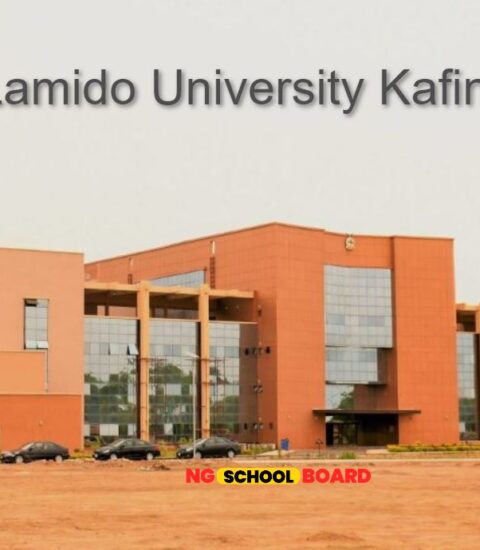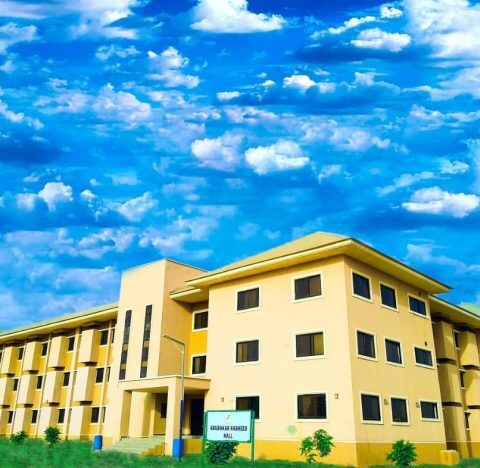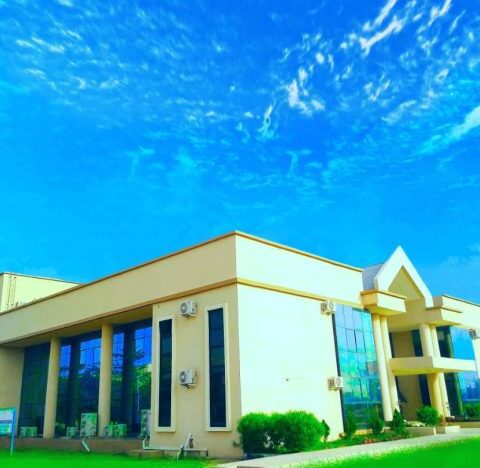Description
An In-Depth Overview of Sule Lamido University Kafin Hausa
Sule Lamido University Kafin Hausa (SLU) is a young but rapidly developing state university located in Jigawa State, Nigeria. Established in 2012, SLU is dedicated to providing high quality, affordable education and empowering students to reach their potential. This comprehensive article will provide an in-depth overview of SLU, covering its history, faculties, courses, admission requirements, fees, campus life, and more.
Introduction to Sule Lamido University
Sule Lamido University (SLU) is owned and funded by the Jigawa State Government in Nigeria. It was established in 2012 under the governorship of Alhaji Sule Lamido, who the university is named after. SLU obtained its license to operate from the National Universities Commission (NUC) in 2012.
The vision of SLU is to become a world-class institution for academic excellence, research, innovation, and community service. The mission is to provide inclusive access to quality higher education, conduct impactful research, and promote entrepreneurship and social development.
SLU places strong emphasis on moral conduct, excellence, social responsibility, and ethics in fulfilling its mandate. The motto of the university is “For Knowledge and Human Dignity.”
A Brief History of Sule Lamido University
Here is a brief timeline of key events in the establishment and growth of SLU:
- May 2012 – SLU was founded by the Jigawa State Government through a bill passed by the state House of Assembly.
- June 2012 – The National Universities Commission granted an operating license to SLU.
- October 2012 – Academic activities commenced at SLU with about 200 pioneer students.
- 2015 – Permanent campus construction began at the Kafin Hausa site.
- 2018 – SLU graduated its first set of students across programs.
- 2022 – Student population grew to over 8,000 with new faculties and departments added.
- 2023 – Ongoing infrastructure expansion with more hostels, lecture halls, labs, and offices.
Despite being a young institution, SLU has rapidly expanded its faculties, student enrollment, courses, physical development, and profile over the past decade.
Faculties and Academic Departments at SLU
SLU has seven faculties offering various degree programs across departments and units. The faculties are:
1. Faculty of Agriculture
- Department of Crop Protection
- Department of Soil Science
- Department of Animal Production
- Department of Agricultural Economics
2. Faculty of Arts and Social Sciences
- Department of Economics
- Department of Political Science
- Department of Sociology
- Department of English and Literary Studies
- Department of Languages
3. Faculty of Education
- Department of Arts Education
- Department of Science Education
- Department of Educational Foundations
- Department of Physical and Health Education
4. Faculty of Engineering
- Department of Electrical Engineering
- Department of Civil Engineering
- Department of Mechanical Engineering
- Department of Chemical Engineering
5. Faculty of Environmental Design
- Department of Architecture
- Department of Building
- Department of Quantity Surveying
- Department of Urban and Regional Planning
6. Faculty of Management Sciences
- Department of Accounting
- Department of Business Administration
- Department of Banking and Finance
- Department of Marketing
7. Faculty of Natural and Applied Sciences
- Department of Mathematics
- Department of Computer Science
- Department of Microbiology
- Department of Chemistry
- Department of Physics
This diverse range of faculties and departments provides students a wide array of programs to choose from at SLU.
Academic Programs and Courses Offered at SLU
SLU offers undergraduate, postgraduate, and professional degree programs across fields. Here are some of the major courses available:
Undergraduate Programs
- BSc Economics
- BEng Civil Engineering
- BSc Computer Science
- MBBS
- BSc Microbiology
- BEd Education
- LLB Law
- BSc Accounting
- BSc Architecture
- BSc Nursing
Postgraduate Programs
- MSc Economics
- MEng Civil Engineering
- MSc Computer Science
- MEd Education
- LLM Law
- MSc Accounting
- MSc Microbiology
- MA English
- MBA Business Administration
Professional Programs
- Medicine and Surgery
- Law
- Engineering
- Architecture
- Accounting
The variety of programs covers diverse interests and career paths allowing students to specialize in their chosen subject areas.
Overview of Tuition Fees at SLU
SLU prides itself on offering affordable higher education. Here is an overview of the tuition fees:
- Undergraduate: Approximately N25,000 – N40,000 per session
- Postgraduate: Approximately N30,000 – N60,000 per session
- Professional: Approximately N100,000 – N200,000 per session
- International Students: $2000 – $3000 per session
There are differences in fees depending on the faculty and program. Additional costs include acceptance fees, hostel accommodation, departmental charges, etc.
SLU offers scholarships, grants and financial assistance to support eligible students from disadvantaged backgrounds.
SLU Admission Requirements
To be admitted into SLU, prospective students must meet these minimum entry requirements:
Undergraduate Admission Requirements
- 5 credit passes in SSCE/NECO including specified subjects for your program
- Minimum JAMB cut-off mark for the year of application
- Acceptable UTME and post-UTME screening results
Postgraduate Admission Requirements
- Good first degree with minimum of Second Class Lower division
- NYSC discharge certificate
- Minimum of Second Class Upper division for MSc/MA/MBA
- Ph.D. applicants require master’s degree
Professional Program Admission Requirements
- Relevant bachelor’s degree in discipline e.g. LLB for Law
- Competitive scores in qualifying exams like JAMB, POST-UTME
- Excellent SSCE/NECO results
International Admission Requirements
- Equivalent qualifications as approved by NUC
- International English exams like TOEFL, IELTS etc.
Meeting departmental requirements and excelling in the screening process is key.
SLU Campus and Student Life
SLU currently has its main campus located along Dutse Road in Kafin Hausa, Jigawa State. The campus houses academic areas, hostels, sports facilities, health centers, worship centers, cafeterias, and more. Additional campuses are being built to accommodate the growing student population.
SLU aims to provide a conducive environment for students. Campus life includes:
Accommodation – Hostels provide accommodation for students coming from outside the state.
Sports and Recreation – Sports facilities for football, basketball, tennis etc. are available.
Clubs and Societies – Various student organizations cater to academic, social, cultural, and spiritual interests.
Events – Activities like orientation, conferences, seminars, inter-university competitions etc.
Facilities – Libraries, laboratories, clinics, auditoriums, and cafeterias provide support services.
SLU offers students a balanced academic and social student experience. Students can develop leadership, teamwork, creativity and other soft skills through campus involvement.
The Future and Conclusion
In just over a decade, SLU has undergone rapid growth. The university continues to expand infrastructure and facilities, increase student enrollment, introduce new programs, and enhance partnerships.
SLU aims to produce graduates equipped to excel professionally and contribute to development. With affordable fees and a nourishing environment, SLU provides youth from northern Nigeria access to life-changing higher education.
As a fast-rising university, SLU has strong prospects to become a leading institution for education, research, and innovation in the region and nationally. The future is bright for SLU to achieve its vision of being a world-class university.
FAQ About Sule Lamido University
Here are some frequently asked questions about SLU:
What types of programs are offered at SLU?
SLU offers undergraduate, postgraduate, and professional degree programs spanning fields like agriculture, sciences, engineering, law, business, education etc.
What is the process for getting admission into SLU?
You must meet set entry requirements, score well in UTME/JAMB, participate in post-UTME screening, and complete all registration steps before matriculation.
Does SLU have part-time or distance learning programs?
Currently SLU does not offer part-time or distance learning. All programs involve full-time on-campus study.
What accommodation options are available for students?
SLU provides hostel accommodation on campus for students coming from outside the state at subsidized rates. Private hostels are also available off-campus.
What scholarships or financial aid options exist for students?
SLU provides scholarships, grants, and other funding opportunities for qualifying students from disadvantaged backgrounds.
What student activities and organizations exist at SLU?
There are diverse student clubs, sports teams, events, and societies catering to various interests such as academic, social, cultural, leadership, and spiritual.
What safety measures are in place on SLU’s campus?
SLU has security personnel, protocols, emergency resources, and medical facilities to ensure a safe and protected environment for students.
In summary, SLU offers an excellent learning experience and student life at affordable costs. With its rapid growth, SLU has strong potential to become a top institution in Nigeria and beyond.






